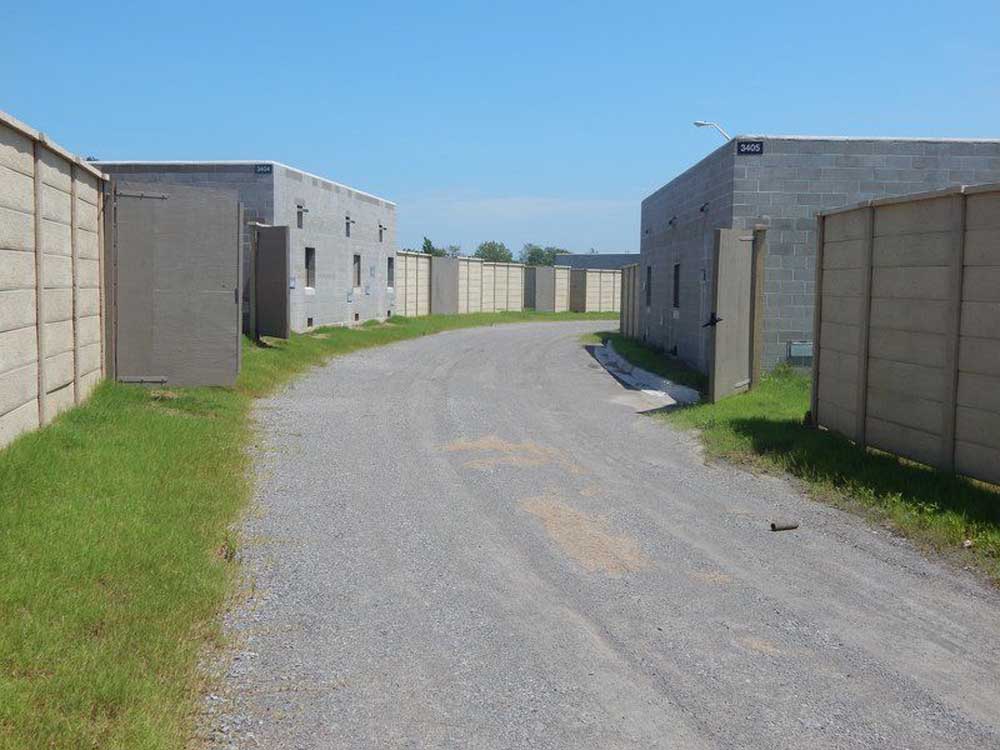Okla. military training facility includes “Middle Eastern” village
Published 11:00 am Wednesday, July 29, 2015

- These brick walls and wooden gates at Camp Gruber represent Afghan family compounds. Afghan walls are made of mud bricks and are about 10 feet high. The camp used about $9 million in federal funds to create this compound and upgrade a similar compound replicating a European village. Both compounds are outfitted with technological devices such as lights, cameras, sounds, smells and smoke.
BRAGGS, Okla. — A $9 million infusion of federal funds has upgraded an Oklahoma military facility that can train the military to go practically anywhere in the world.
Lt. Col. John Altebaumer, deputy camp commander at Camp Gruber Joint Maneuver Training Facility, said the federal funds were used to build an exact duplicate of a Middle Eastern village. The camp is located in Braggs, Oklahoma.
Trending
The European village, which was built in the early 1990s, also was upgraded with the same technology as the Middle Eastern village, he said. There is training scheduled for the end of September to teach Gruber employees how to operate equipment that will control lights, sounds, smoke, smells and cameras, Altebaumer said.
With the inclusion of an exact duplicate of a Middle Eastern village, the training facility can now train the military to go practically anywhere in the world, Altebaumer said. The Middle Eastern village even has a 1,500-square-foot mosque with a “gold” dome, which is interchangeable with a cross. The two training facilities take up 25 acres.
“Operating in a Middle Eastern village is entirely different than operating anywhere in the U.S. or Europe,” Altebaumer said.
Afghanistan families don’t live in individual homes, they live in compounds that have a wall made of mud bricks about 9 to 10 feet high, he said. Entrance to the compound is usually only through one or two gates, Altebaumer said.
“Consequently, upon entering an Afghan village, everything is fenced off.”
Soldiers enter an Afghan village not knowing what to expect with military vehicles about 6 feet wide on a road that’s 7 to 10 feet wide surrounded on both sides with solid walls, Altebaumer said.
Trending
“In my case, a grenade came over the wall — it was a significant emotional moment for me,” he said.
“You don’t know what’s in it (the compound), around it, or what could come over the walls, but you have to check to see there are any insurgents inside,” he said.
So, how does a soldier train for this?
“You build it,” Altebaumer said.
The number of compounds vary depending upon the size of the village which could be anywhere from four to 70, Altebaumer said. If soldiers know there’s a terrorist in a particular compound, they can’t go through the high wooden gates because they’re going in blind and facing a “death funnel,” he said. So, soldiers use a heavy-duty vehicle and break through the mud brick walls.
What do you do when the people you are tracking enter a mosque in which you can’t enter? The soldier is required to contact the Afghan National Army of the Afghan police, and they will enter the mosque to bring out the people you are looking for. The same is true with an Afghan cemetery, Altebaumer said.
Included in the Middle Eastern village is a simulated Afghan National Army or Afghan police headquarters and jail so soldiers can be trained how to interact with them. Bomb makers also are found in industrial yards, so soldiers are trained on how to handle that situation, too, Altebaumer said.
Each village is equipped with enough cameras to document the moves of the soldiers, which can be played during their “after action review” to determine what they did well and what could be improved, he said.
While the video is playing, a “table top” duplicate of the village is available to follow the tracks of their movement, Altebaumer said. The “table top” is two sided — one side is the duplicate of the European village and the opposite side is a duplicate of the Middle Eastern village, he said.
“It’s all about training soldiers to go overseas, do their job and be able to survive,” Altebaumer said.
Hughes writes for The Muskogee (Okla.) Phoenix


